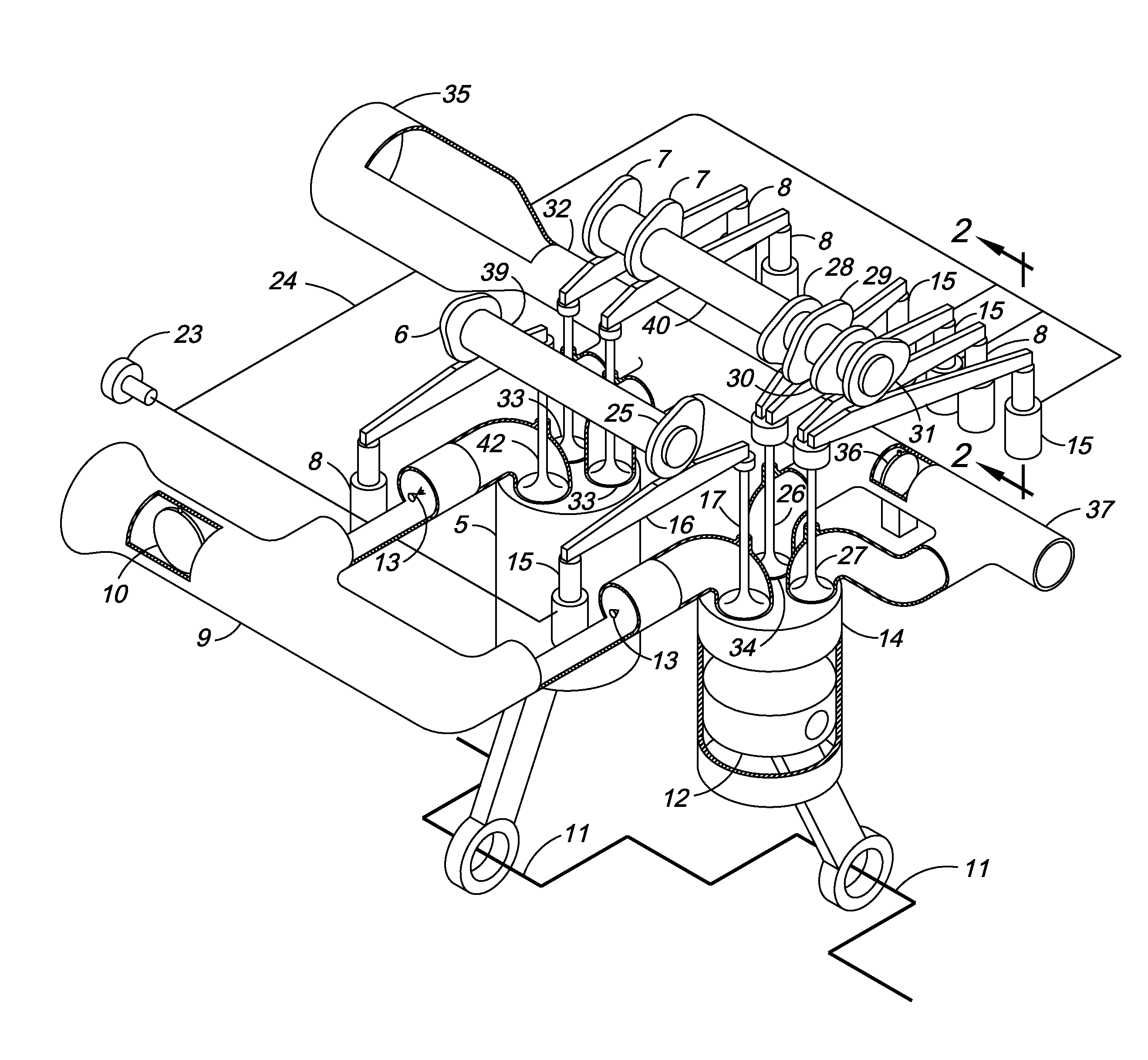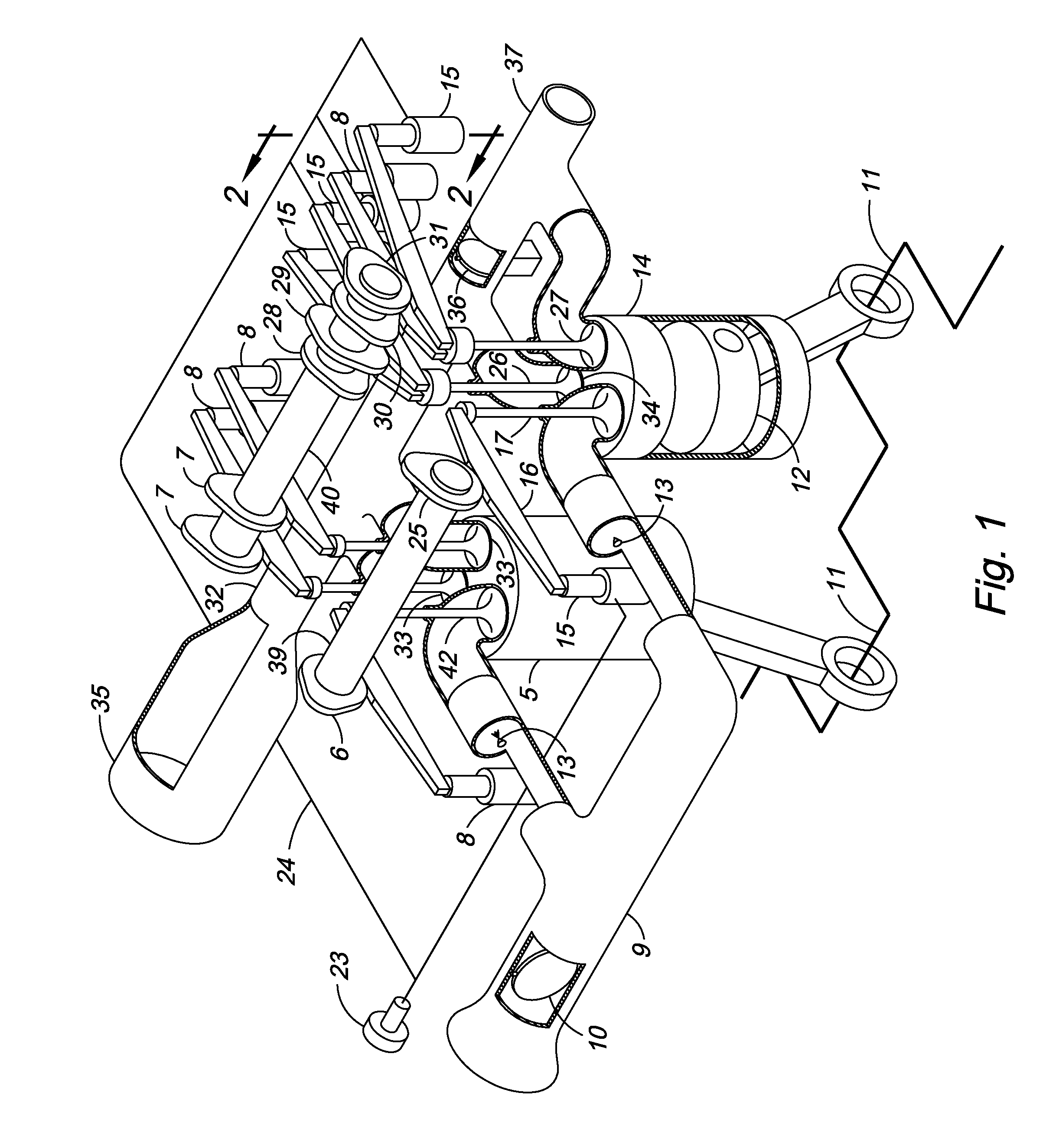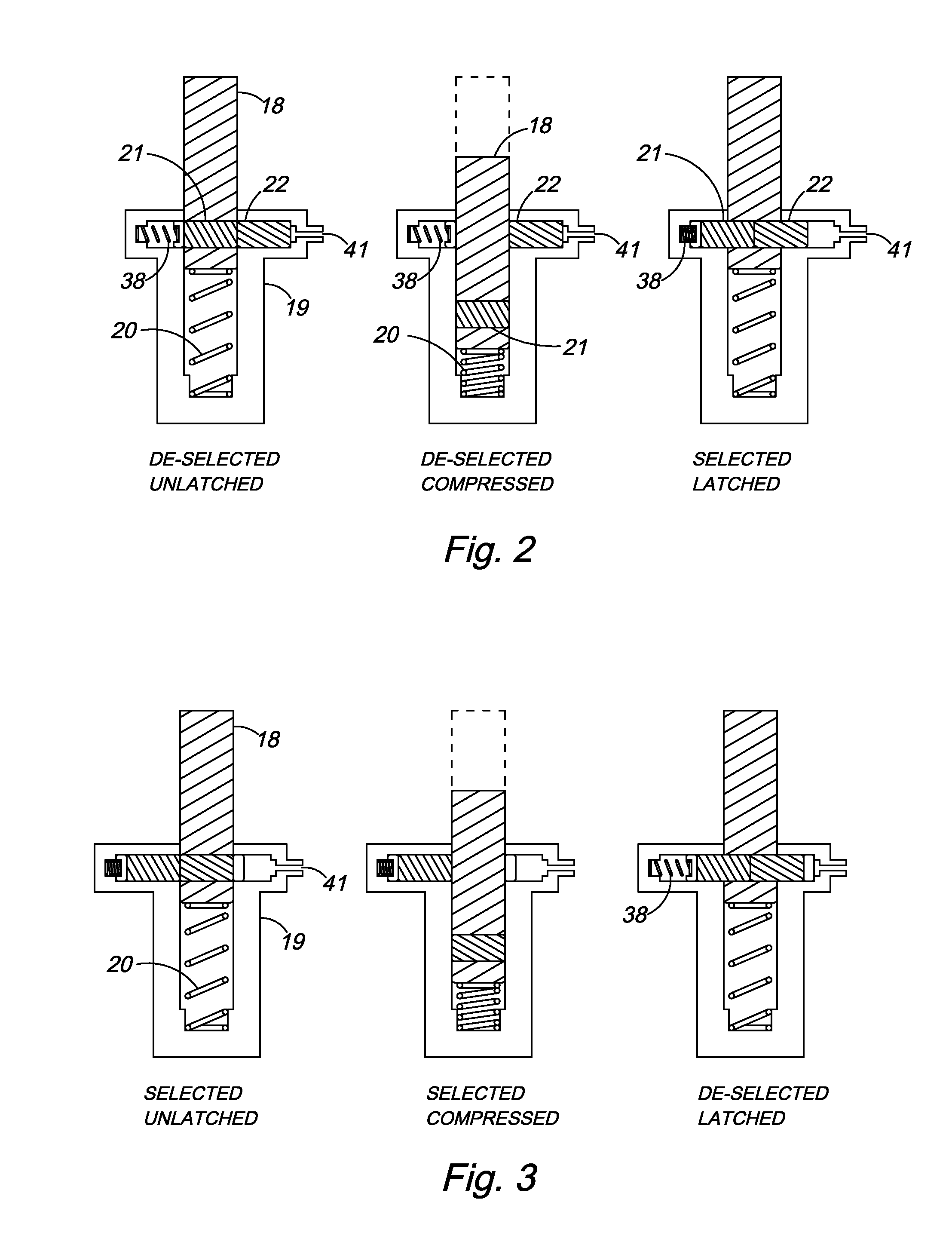Selective compound engine
a compound engine and engine technology, applied in the direction of combustion engines, hot gas positive displacement engine plants, machines/engines, etc., can solve the problems of reducing compression ratio, limiting compression ratio, and reducing compression ratio, so as to reduce nitrogen oxide gas emission, increase the overall expansion ratio, and reduce the effect of peak combustion temperatures
- Summary
- Abstract
- Description
- Claims
- Application Information
AI Technical Summary
Benefits of technology
Problems solved by technology
Method used
Image
Examples
Embodiment Construction
The present invention will now be described more fully hereinafter with references to the accompanying drawings, in which preferred embodiments of the invention are shown. This invention may, however, be embodied in many different forms and should not be construed as limited to the embodiments set fourth herein; rather, these embodiments are provided so that this disclosure will be thorough and complete and will fully convey the scope of the invention to those skilled in the art. Like numbers refer to like elements throughout.
Turning now to FIG. 1, power cylinder 5 has an intake valve cam 6 and exhaust valve cams 7, and fixed couplings 8 between the cams and the valves. The engine has a conventional intake manifold 9 and intake throttle valve 10. Per conventional practice, the crankshaft connecting rod journals 11 are clocked 180 degrees from each other such that when one piston 12 is at top dead center, the other piston is at bottom dead center. FIG. 1 shows individual intake port ...
PUM
 Login to View More
Login to View More Abstract
Description
Claims
Application Information
 Login to View More
Login to View More - R&D
- Intellectual Property
- Life Sciences
- Materials
- Tech Scout
- Unparalleled Data Quality
- Higher Quality Content
- 60% Fewer Hallucinations
Browse by: Latest US Patents, China's latest patents, Technical Efficacy Thesaurus, Application Domain, Technology Topic, Popular Technical Reports.
© 2025 PatSnap. All rights reserved.Legal|Privacy policy|Modern Slavery Act Transparency Statement|Sitemap|About US| Contact US: help@patsnap.com



